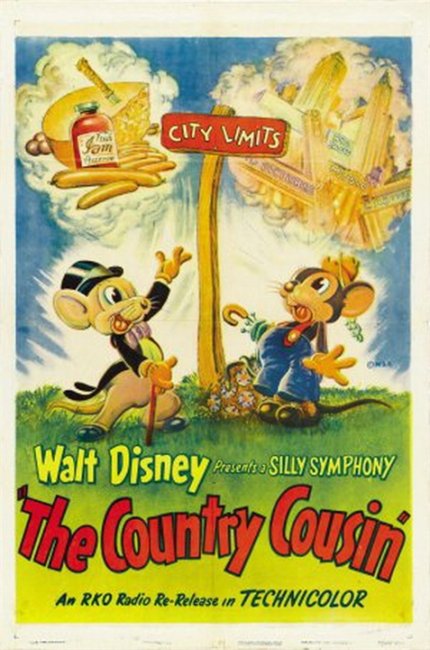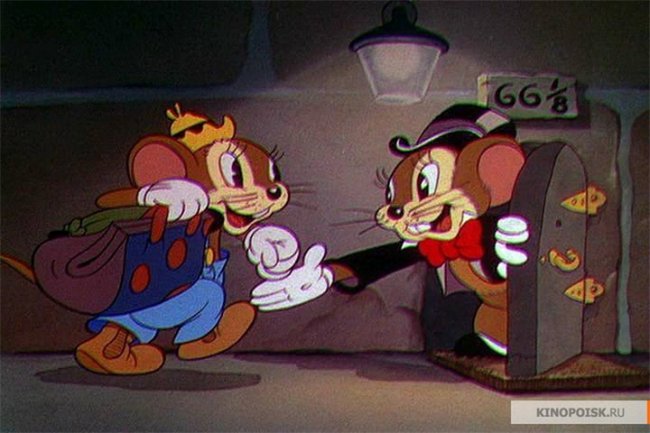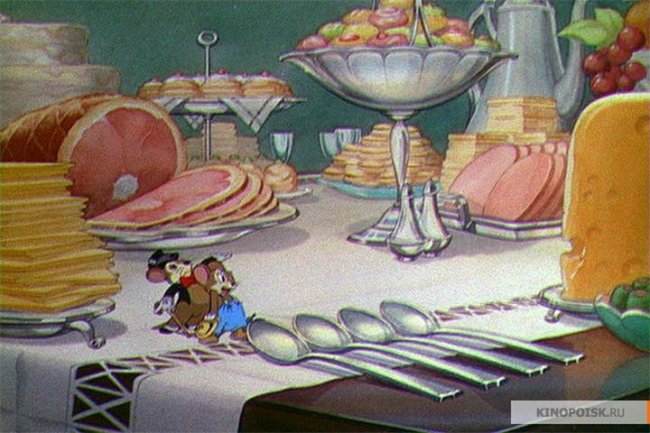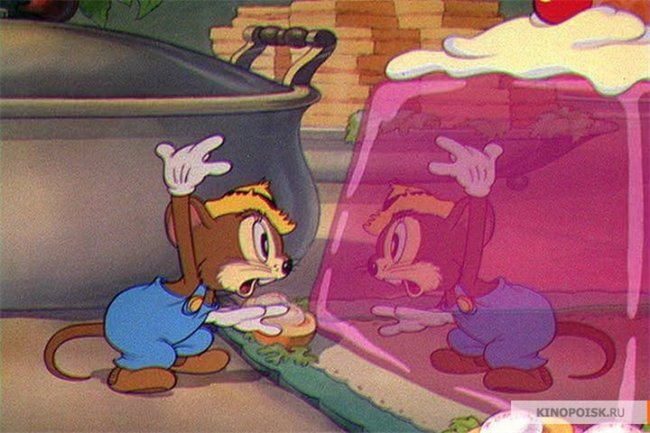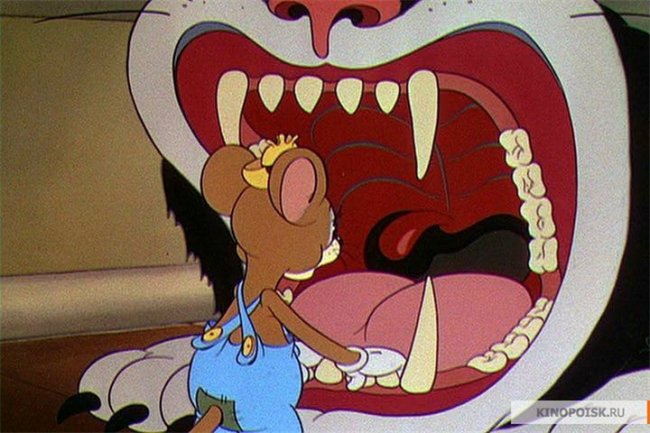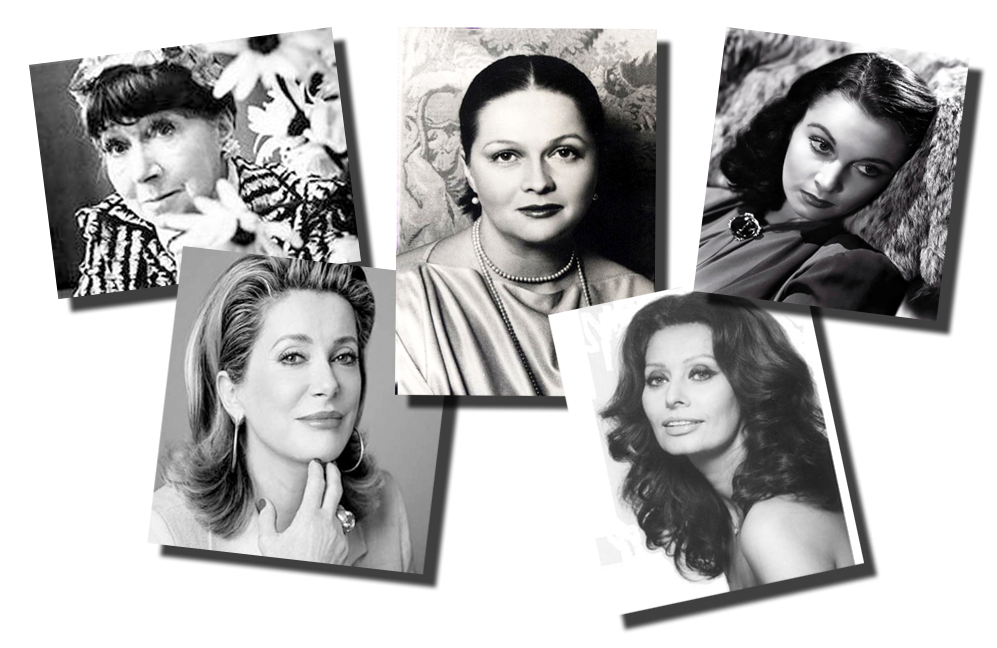ОСКАР. 1937 Лучший корот. анимац. фильм. Деревенский Кузен (The Country Cousin) - Трейлеры

The Country Cousin is an animated short film released on October 31, 1936 by RKO Radio Pictures. The winner of the 1936 Academy Award for Best Animated Short Film, the film was produced by Walt Disney, directed by Wilfred Jackson, and animated by Art Babbitt and Les Clark. As is true for most cartoons in the Silly Symphonies series, The Country Cousin was based around a musical score, which was written by Leigh Harline. The film's story was based on one of Aesop's Fables, The Town Mouse and the Country Mouse. It was accompanied by a storybook for young children, which was usual for the most popular Silly Symphonies.
ОСКАР. 1937 Лучший корот. анимац. фильм. Деревенский Кузен (The Country Cousin)
The Country Cousin tells the story of a mouse from "Podunk" (an American English name denoting a place "in the middle of nowhere") coming to visit his relative in the city. The opening shot/title card is of the mouse in question, Abner, staring up at the city skyscrapers, with the sign directing him to Podunk facing the opposite way. He receives a telegram (titled a "Mouse-O-Gram") from his cousin, Monty, telling him to "Stop being a hick" and come live with him in the city. Without specifying the location of Abner or Monty, the film sets out to contrast the lifestyles of the archetypal country and city inhabitants.
ОСКАР. 1937 Лучший корот. анимац. фильм. Деревенский Кузен (The Country Cousin)
Abner is shown walking along a railroad towards the city, and when he arrives, the differences between the two become clear. Abner is wearing overalls and is portrayed as bumbling and oblivious to the dangers of the city, whilst Monty sports a top-hat and is acutely aware of the problems they face (as exemplified whenever he tells Abner to shush, which is also the only sign of dialogue here). Monty leads Abner to a meal that the human residents of the household have set out. The two mice begin by dining on cheese, but Abner lacks any sense of etiquette, and soon begins gorging himself on celery, cream, and mustard, the latter of which generates a reaction to the excessive heat. Cooling himself with Champagne, Abner finds himself partial to the taste, and becomes drunk, provoking the disdain of Monty. Abner begins seeing in double vision, and creates more noise by bringing down a pile of bread (causing the double visions of Monty to hide behind the real one).
Abner then assesses his reflection (which, in his intoxicated state, he thinks is someone else) in a block of jelly . As he walks away, he slips on a piece of butter lying on a saucer. The saucer, spinning and flying across the table, catches Monty on the way, and breaks several pieces of dishware too. Monty is infuriated, and as the pair are now on the floor, he attempts to find a secluded spot, safe from the sleeping pet cat. The inebriated Abner, with a great sense of bravado, kicks the cat's behind, whilst his cousin rushes back to his home (and is never seen again from that point onwards). The cat bares its teeth at Abner, which only leads him to inspect the inside of its mouth, thus bringing Abner back to his senses. He is then chased by the cat, first receiving an electric shock by jumping inside a socket (the cat receives a shock as well), and then ending up on the city street when he jumps out of the window.
Abner is faced with escaping from the footsteps of the people, a bike, an electric tram, and other vehicles. He finds himself at the city limits again, and flees back to his home town.
In the early 1960's, Disneyland Records released an LP version of the story, narrated by Sterling Holloway, with music by Camarata. Because the running time of the LP was about thirty minutes, more than twice the length of the original cartoon's running time, much additional material was added to the plotline of the story. On the LP cover, the story was humorously billed as being after Aesop - way after.
Понравилось:
Автор: Оксана
Комментариев: 0
Надо знать.
Михаил Тройник - Биография

Михаил Тройник: биография Михаил Тройник – актер российского театра и кино, исполнитель роли Славы в ситкоме «ФилФак». Михаил родился ...
→ Подробнее:)

Мы в соц. сетях
Актёры и режиссёры
Разместить рекламу
Сегодня
«Всё о Шоу Бизнесе» - самые популярные новости кино.
Начнем с того, что на сайте общаются сотни людей, разных религий и взглядов, и все они являются полноправными посетителями нашего сайта, поэтому если мы хотим чтобы это сообщество людей функционировало нам и необходимы правила.
Мы настоятельно рекомендуем прочитать настоящие правила, это займет у вас всего минут пять, но сбережет нам и вам время и поможет сделать сайт более интересным и организованным. Начнем с того, что на нашем сайте нужно вести себя уважительно ко всем посетителям сайта.
Не надо оскорблений по отношению к участникам, это всегда лишнее.
Лучшие посты
Недавние посты
Сегодня в топе



